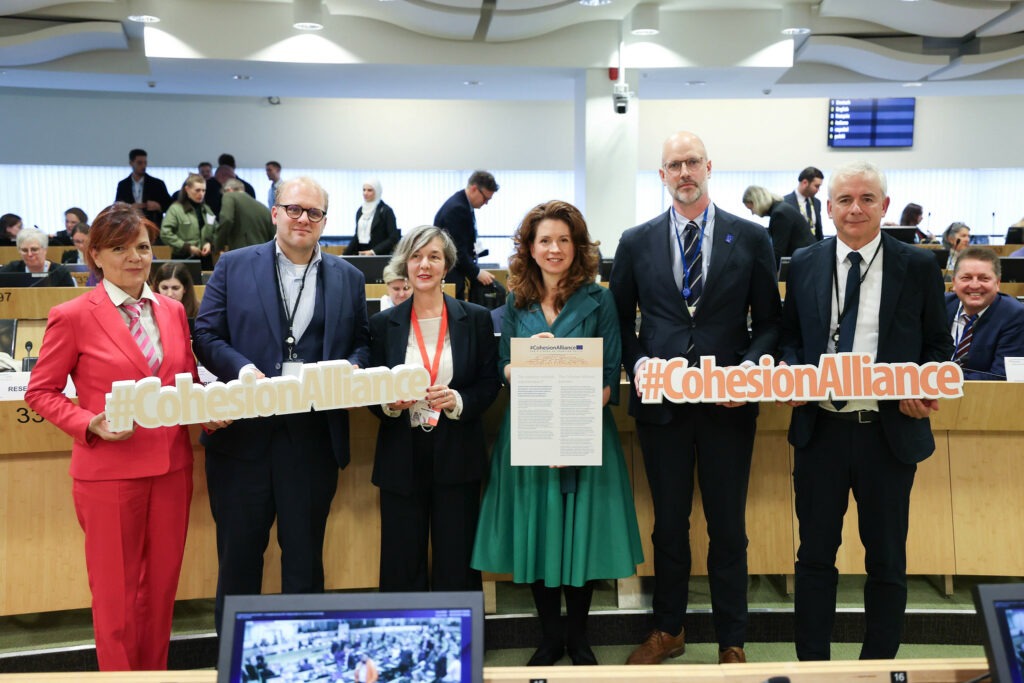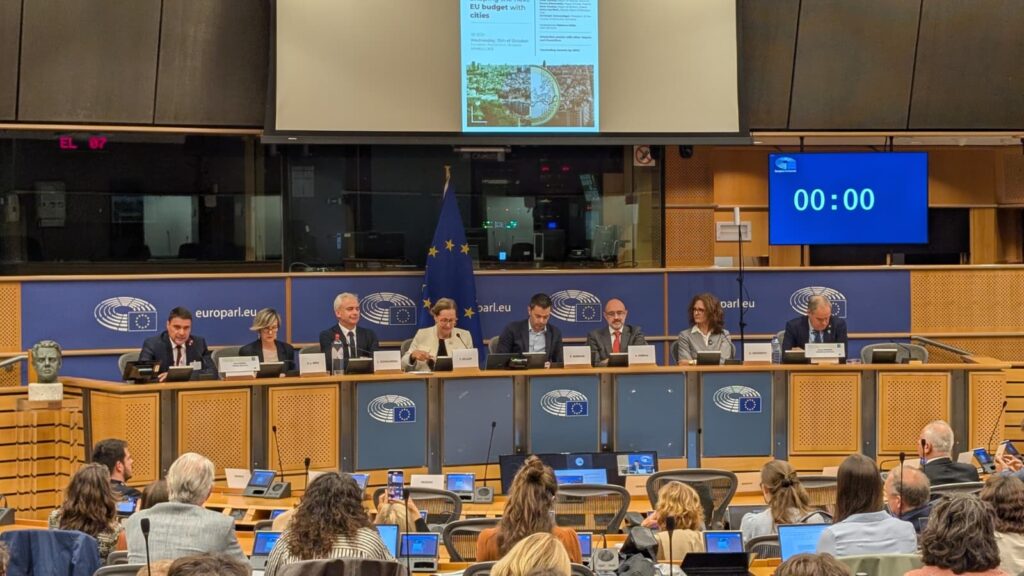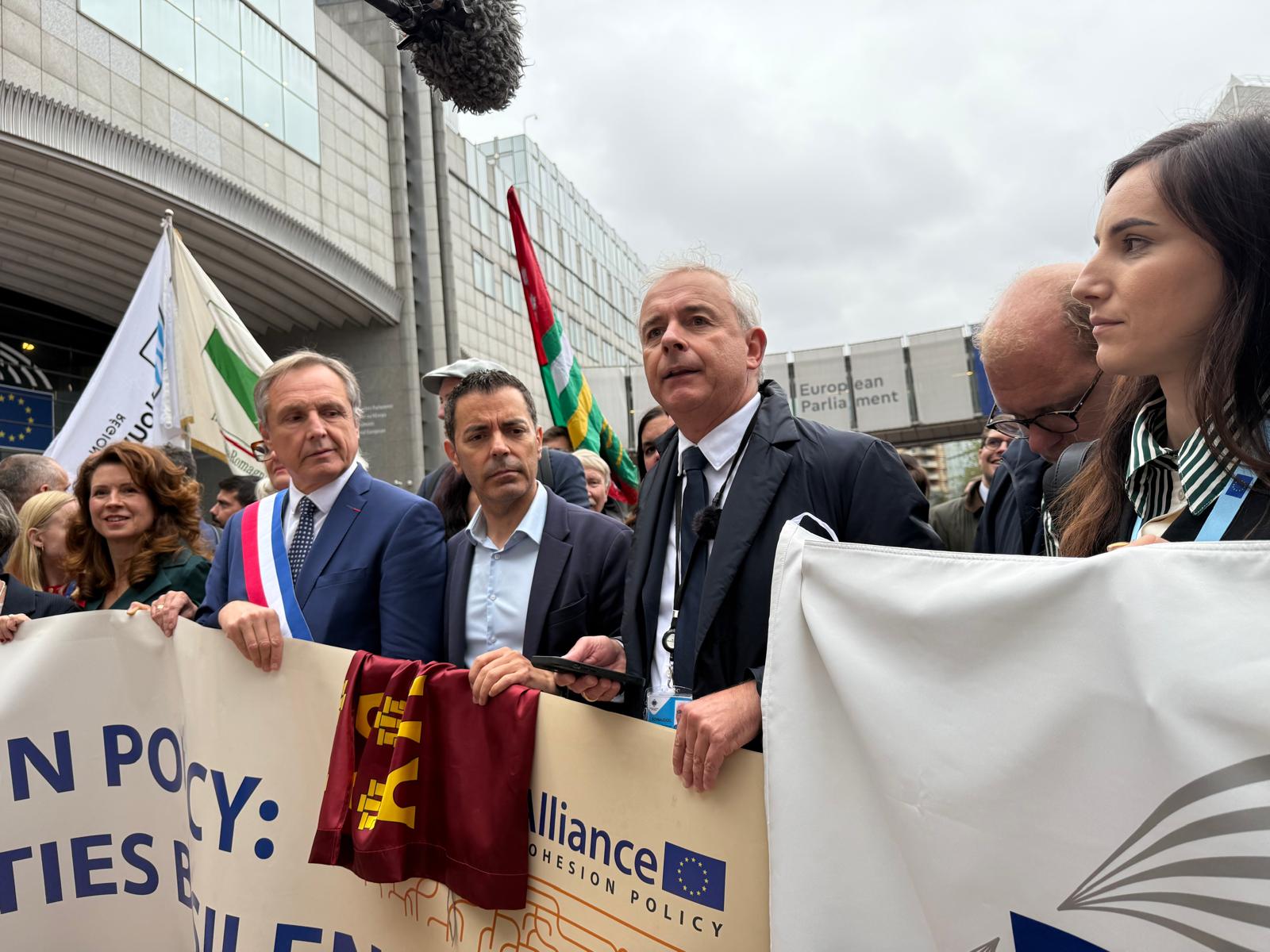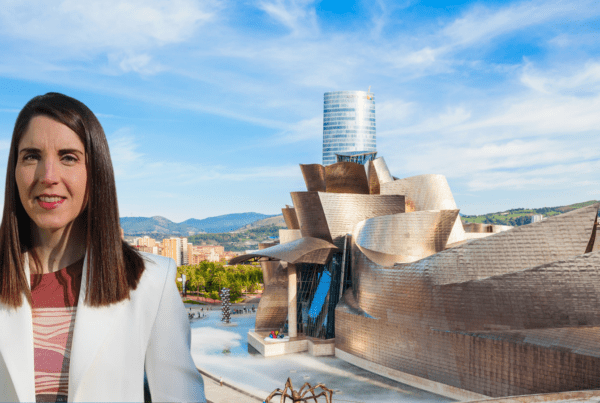Cities and regions unite to defend their role in Europe’s next budget
During this year’s European Week of Regions and Cities, Europe’s local and regional leaders sent a clear message: the future of the EU budget must not sideline those who make Europe work.
Through two major events — one under the #CohesionAlliance and another by The European Urban Forum and the Local Alliance — the Council of European Municipalities and Regions (CEMR) and its partners mobilised to defend the role of towns, cities and regions in shaping and delivering the EU’s next long-term budget for the period 2028–2034.
These engagements follow a broader advocacy effort launched right after the European elections, when the new EU institutions began to define the political priorities for the current mandate.
Standing up for partnership and cohesion

On 15 October, elected representatives from across Europe gathered in front of the European Parliament to call on EU institutions to give local and regional governments full partnership rights in the future Cohesion Policy, and to resist its nationalisation and centralisation.
In a symbolic action joined by Members of the European Parliament (MEPs), the European Committee of the Regions and Europe’s territorial associations, the #CohesionAlliance partners adopted a seven-point call rejecting the European Commission’s current proposal .
“Bundling Cohesion Policy with policies on agriculture, defence or migration,” the statement warned, “would force local and regional authorities to compete for funds at the national level.” Such a shift, participants stressed, risks moving decision-making power away from regions and cities — the level where the EU’s goals are actually delivered.

“Competitiveness and cohesion are two sides of the same coin,” said Christoph Schnaudigel, CEMR Co-President and President of the County of Karlsruhe, Germany. “Businesses in our cities need infrastructure, housing, schools, and fibre networks. Cohesion is part of the Treaties — we need competitiveness and cohesion together. Otherwise, the money will disappear before reaching local communities. The European Commission must talk to us. You can’t know what territories need from Brussels or Berlin — we know it at the local level.”, he added.
Cities at the centre of Europe’s priorities
Later the same day, local leaders gathered again in the European Parliament for a debate titled “Shaping the Next EU Budget with Cities”, convened by the European Urban Forum in cooperation with the Local Alliance.

The message from city leaders, MEPs and European institutions was united: Europe’s priorities — from the green transition to digital transformation — cannot succeed without empowering cities and regions. As CEMR’s Christoph Schnaudigel put it: “You don’t know what the needs are from Brussels. We do — from the local level.”
Pascal Smet, Member of the Brussels-Capital Parliament and the European Committee of the Regions, warned that the proposed setup risks creating “a Europe of nation states”.
Other leaders, such as Peter Dermol, Mayor of Velenja (Slovenia), underlined the dangers of losing citizens’ trust if Europe fails to deliver on its promises in regions undergoing industrial transitions.
From Germany, Eckart Würzner, Mayor of Heidelberg, stressed that “cities are defenders of democracy” and that without adequate resources, “we will stand up” to protect the local dimension of Europe’s future.
Anna Lisa Boni, Deputy Mayor of Bologna (Italy), urged the EU to use the forthcoming Agenda for Cities as “a lighthouse” to ensure the next Multiannual Financial Framework (MFF) strengthens, rather than weakens, the role of local governments.
CEMR’s key asks on the next EU budget
CEMR is already working on an intense advocacy campaign to shape the current EU budget proposal made by the European Commission.
As stated in the document, ‘EU budget 2028-2034: Main changes, challenges and opportunities for local and regional governments’, CEMR has key asks on this topic:
- Ensuring effective multilevel governance and meaningful partnership in the next MFF
- Placing cohesion and territorial balance at the core of the next eu budget
- Guaranteeing fair access to EU funding for local governments across all EU programmes
- Enhancing support for local governments in EU enlargement and accession of candidate countries
- Developing a dedicated EU programme to reinforce local democracy
These proposals echo the sentiment voiced by local leaders throughout the European Week: Europe’s strength lies in its territories. Cohesion and competitiveness can only coexist through real partnership between all levels of government.
For more information, contact:

Director – Policy & Impact







